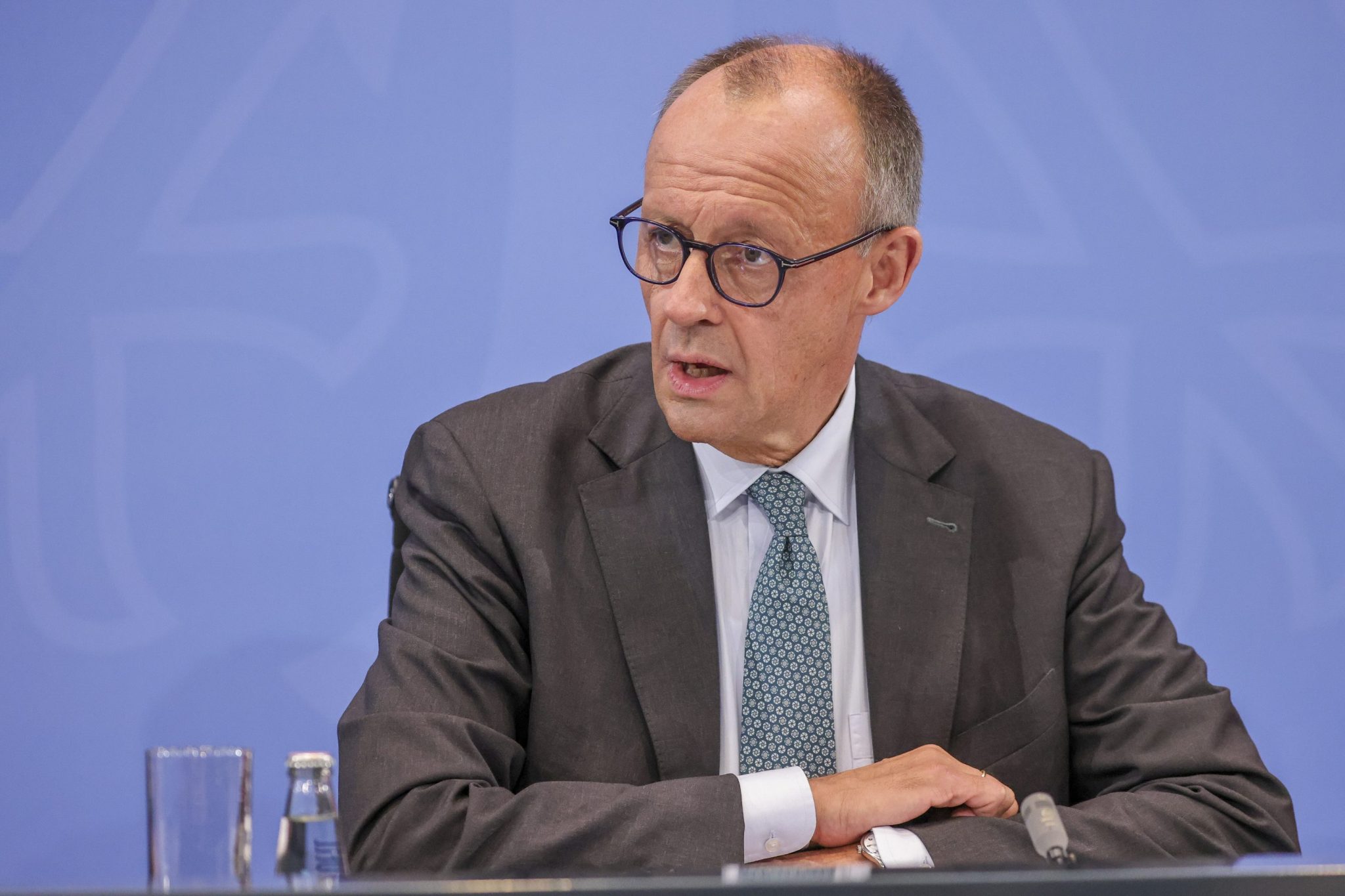Does Germany need to work harder? His government seems to think so


A study of the organization of economic cooperation and development reports that the Germans work the least among its member countries, with 1,335 hours per person and per year in 2023, against 1,496 hours in the United Kingdom and 1805 hours in the United States
In response, Chancellor Friedrich Merz said that the Germans had to work harder to make the economy more productive, because it has not grown up much in the past five years.
“In this country, we have to work more again and, above all, more effectively,” he said in May. “It is not with the four -day work week and” the balance between professional and private life “that we can maintain our prosperity!”
OECD research is supported by the data of 2024 Eurostat, which also found that the Germans come up against the lower end of the scale compared to their EU neighbors. Europeans working the most hours are in Greece, Poland, Romania and Bulgaria, where the average work week lasts around 39 hours. The Netherlands had the lowest average with just over 32 hours per week, followed by Austria at 33.9 hours and Germany at 33.9 hours.
Throughout Europe, the average number of hours worked by full -time employees in their main work was 36 hours in 2024, according to Eurostat. The United Kingdom and France follow this average, both reaching around 36 hours.
German productivity
In addition to working for less hours, every hour is less productive. The German labor productivity per hour worked was less than 1.7% in the second quarter of this year compared to the first quarter of 2023, according to European data from the Central Bank. It has also been essentially flat since 2009.
Many note that with a drop in productivity and 11% of the workforce which should retire over the next 10 years, there are real concerns about how Germany will finance people’s social security. Immigration could be a solution, as pointed out The guardian A recent infographic on the planned population decreases by 2100, but it has become an increasingly controversial question in European countries. Without solution, Germany cannot implement a planned improvement of 500 billion euros in infrastructure, and there are also the expected defense expenses to which many EU countries are incurred.
Some plead for the need to cancel a public holiday, as Denmark did in 2023; The current French Prime Minister, François Bayrou, causes agitation by trying to withdraw two from the calendar year. Others prefer to use tax incentives to encourage people to enter the job market. In Germany, there is currently a legal limit which prohibits employees from working more than eight hours a day.
Merz, for his part, would like to abolish this daily work limit while maintaining the 40 -hour work week, allowing working days to become more flexible. Others want to encourage retirement age, 67 and over, to continue working and winning up to € 2,000 per month, exempt from tax, encouraging more people to stay longer.
Disease leave increases
Another problem through Europe, more generally, is that people retire earlier, citing professional exhaustion and general exhaustion, a trend affecting the entire active population. In fact, unions focus less on wage increases and more about saving more working time.
Recent data from the special Microsoft work trend index report reveals that many workers suffer from an “infinite working day”. After analyzing the “billions” of data points on all its products, it seems that most workers are unable to disconnect completely, because they are involved in a meeting, an email or a notification every two minutes, receiving 153 messages each working day, according to Morning Brew.
In addition to that, workers call patients more often. In 2023, statistics show that the average worker in Germany took sick leave for 15.1 days, the highest figure recorded to date. Its neighbor, France, also suffers from the highest levels of sick leave; Les Echos Note that during the first six months of 2024, the cost of French workers taking sick leave increased by 8.5% compared to 2023.
All of this suggests that it could be a difficult battle to bring people back to the job market. However, with aging workforce and economic stagnation, the balance between working hours and productivity remains a critical problem; It has never been so important to determine the difference between that works the most, the best or most effectively.
https://fortune.com/img-assets/wp-content/uploads/2025/09/GettyImages-2232912853-e1757097811437.jpg?resize=1200,600






